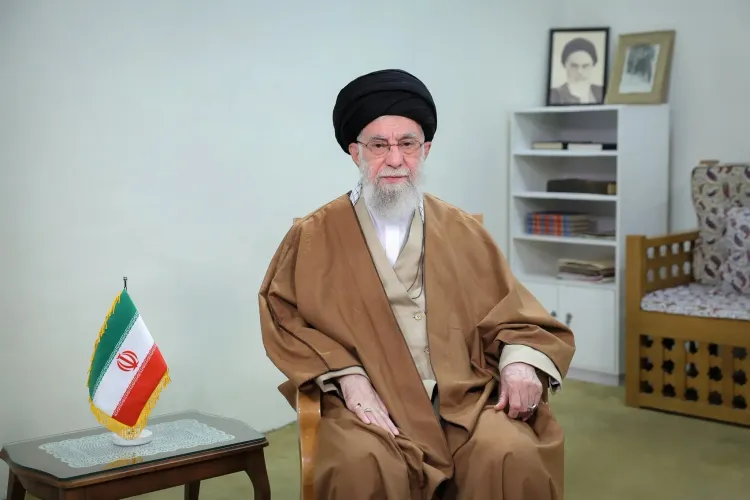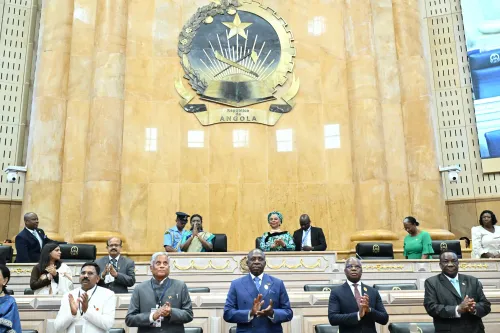Why is Iran's Supreme Leader Opposing Nuclear Talks with the US?

Synopsis
Key Takeaways
- Khamenei opposes US negotiations, citing national interests.
- US demands perceived as dictation, not diplomacy.
- Historical mistrust influences Iran's stance on nuclear talks.
- Recent military actions raise tensions between Israel and Iran.
- Indirect talks continue amidst escalating hostilities.
Tehran, Sep 24 (NationPress) Iran's Supreme Leader Ali Khamenei has firmly rejected the idea of engaging in nuclear discussions with the United States, arguing that the current situation is detrimental to Iran's national interests. In a televised address on Tuesday, he stated, "Under the current conditions, negotiating with the US government is, firstly, of no advantage to our national interests, provides no benefits for us, and will not avert any losses."
Khamenei further emphasized that such negotiations could lead to "significant" and potentially "irreparable" losses for Iran. He pointed out that the US had predetermined the outcome of negotiations by insisting on halting Iran's nuclear activities and uranium enrichment, describing this as "dictation and imposition" rather than genuine negotiations.
He also highlighted the US demands for Iran to relinquish its short-, medium-, and long-range missile capabilities, arguing that this was aimed at crippling Iran’s ability to respond to aggression, as reported by Xinhua.
Khamenei cataloged various hostile actions taken by the US against Iran over the years, declaring that discussions regarding Iran's nuclear program and other issues with the US would lead to an "absolute dead end."
In July 2015, Iran entered into a nuclear agreement with global powers, agreeing to limit its nuclear program in exchange for sanction relief. However, the US exited the deal in May 2018 and reinstated sanctions, leading Iran to reduce its commitments under the agreement.
In April, indirect discussions between Iran and the US commenced regarding Tehran’s nuclear program and the lifting of US sanctions. Just as the two sides were preparing for their sixth round of talks in June, Israel conducted extensive airstrikes across various locations in Iran, targeting both nuclear and military sites, resulting in the deaths of senior commanders, nuclear scientists, and numerous civilians. Iran retaliated with multiple missile and drone strikes against Israel, and on June 22, US air forces bombed three Iranian nuclear facilities.









